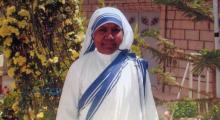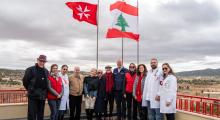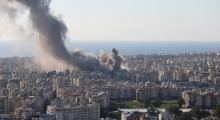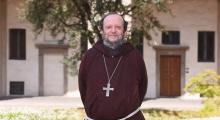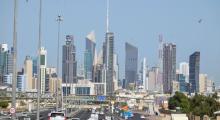Issued by the Catholic Center for Studies and Media - Jordan. Editor-in-chief Fr. Rif'at Bader - موقع أبونا abouna.org
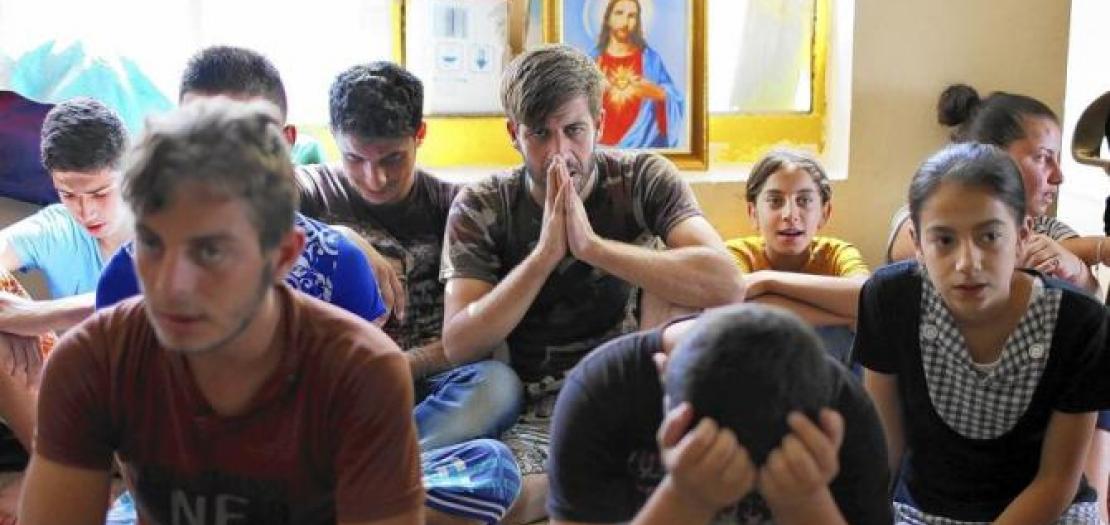
For the first time in history, Iraqi Christians who always had a "high standard of education" in the region, are being deprived of the right to study and cannot attend schools. This represents a further threat to the survival of the minority, not only in Iraq but throughout the Middle East, because there is not the risk that an entire generation "will not be educated", which is a "very bad sign". The warning comes from Msgr. Shimoun Emil Nona, Chaldean Archbishop of Mosul, in the north, the second most important city in the country and first city to fall into the hands of the militia of the Islamic State.
Interviewed by AsiaNews, the prelate confirms that "currently children from many of the refugee families" as well as "children who live in Christian areas" cannot start the school year. "There are about 700 schools scattered between Erbil, Ankawa and Zakkho, he explains, but they are hosting displaced people and are full. In other non-Christian areas the lessons have begun, but not here". Moreover in the areas occupied by the Islamic Caliphate the curriculum has been changed to promote Islam and the Koran.
Msgr. Nona was the first to raise the alarm of the danger posed by the advance of the Islamists after the conquest of Mosul, where about 500,000 people - Muslims and Christians - fled in early June to avoid being forced to convert to Islam. It was also where the militants founded their caliphate and imposed sharia. In cities and in areas on the Nineveh plain that are under the control of the Islamic State schools have reopened. However, under the instruction of their leader the curriculum has changed to ban history, geography and literature; students must study Arabic and the Muslim religion and are forbidden to speak of the Republic of Iraq or Syria, only of the Caliphate.
A Mosul elementary schoolteacher of mathematics and Arabic states that "we are in 2014, but it seems have regressed 14 centuries." 95 per cent of the 2,450 schools in the area - Mosul and Nineveh Plain - are in the hands of the Islamists, who have forbidden mixed classes and have closed the faculty of law, because "conventional law is no longer in force." Rigid rules, imposed by force, are increasingly arousing the impatience of the local population. If at first people saw them as liberators from a central government (under former Shiite Prime Minister al-Maliki) regarded as the oppressor, today 98 per cent of the people - as reported by an academic in Mosul - "would like to see them gone as soon as possible" .
The archbishop of Mosul, who is also a refugee Ankawa, in Iraqi Kurdistan, cannot confirm this radical change of attitude towards the Islamic state and the distortion of the curriculum at the hands of the militia. He admits however, to "having heard similar rumors", and there is a good chance that "they are true." There are still some Christians in the city, but "very few" who live "isolated" and "in danger" because "anything could happen to them".
Msgr. Nona asks us to pray for a situation "which is growing more dramatic with every passing day" especially with the arrival of winter. This interruption in the schooling of young Christians is a serious problem, because it halts the development of an entire generation of Iraqi Christians, who in the past have always been distinguished for their cultural level and standard of schooling. "It is very negative" says the bishop, and "very dangerous".
In the history of community, education has always been an "important anchor for us," says the Archbishop of Mosul, and as a Church "we are trying to rent as many homes as possible" to free schools and allow the resumption of classes . However, the operation is "very slow, because it is not always possible to find homes or housing is unavailable." Concluding, the prelate says however that there are some small signs of hope, "we rented a building with 56 apartments - he says - that can accommodate all the families who, at this time, are housed in a school in Ankawa" . Only one out of 11, he adds, while the goal is "free up at least two or three more."


